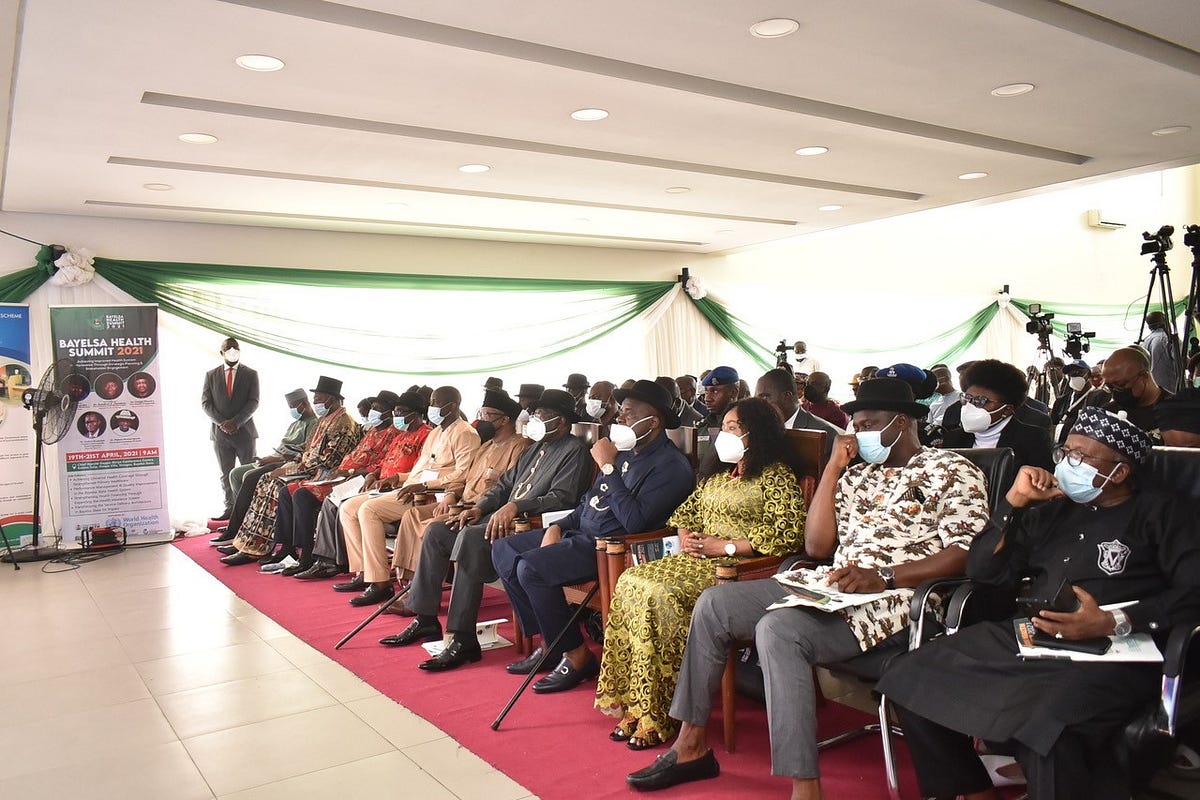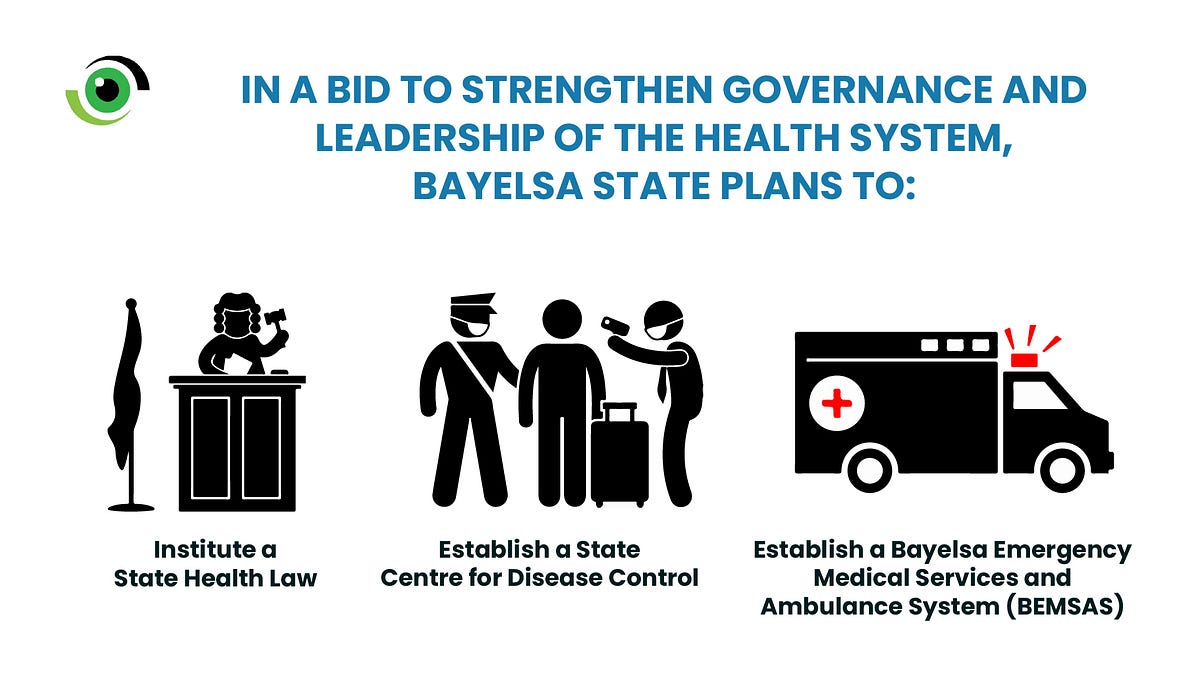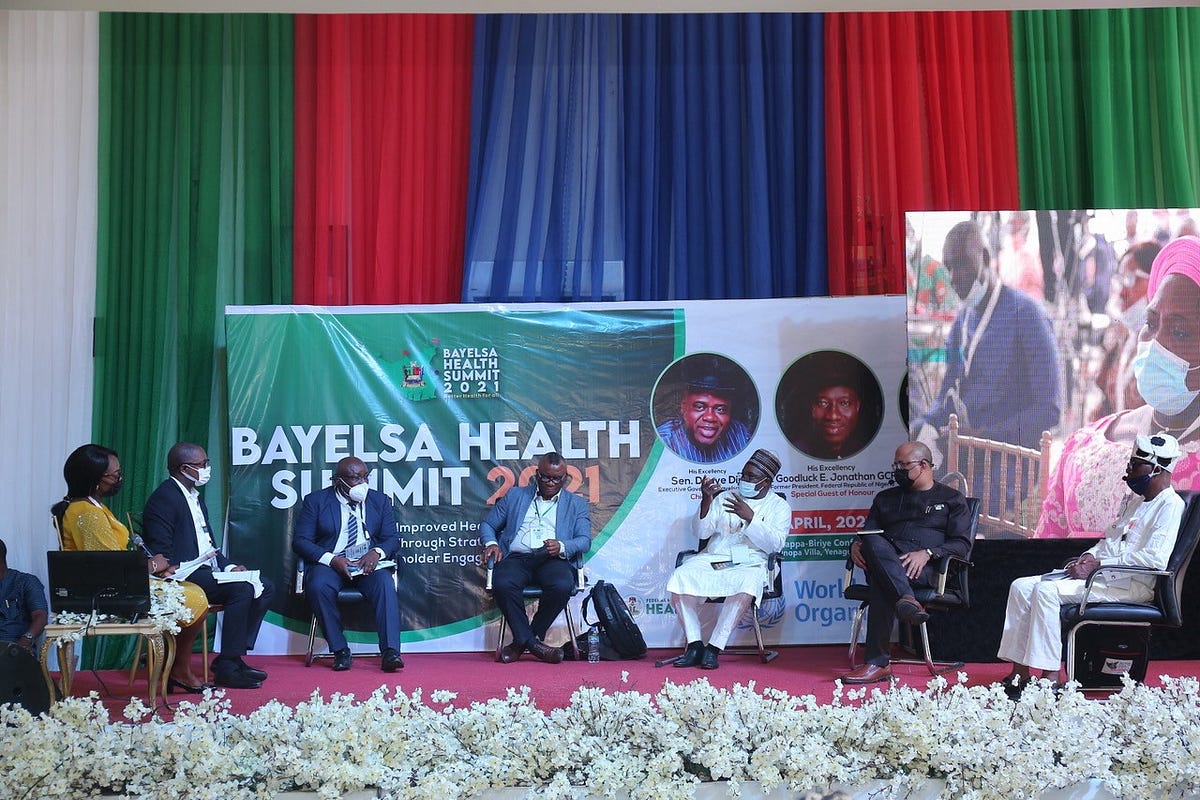By Dr. Chijioke Kaduru (Guest Writer)
There is widespread consensus around the globe on the need to strengthen health systems and make them more resilient. A health system includes all of the different institutions, actors and resources involved in delivering healthcare to individuals. Despite this accord, there is continued debate exactly how individual countries should approach health systems strengthening, putting in place structures that enable them to sustain shocks. Throughout known history, there have been a series of epidemics or pandemics, with consequent deaths, adding up to a long list of shocks that health systems around the world, and low and middle income countries like Nigeria have faced. Yet, the COVID-19 global pandemic has given new meaning to shocks and to the need for resilient health systems.
It is important to seek out lessons from health systems strengthening initiatives that are working. From the Niger-Delta region of Nigeria, an interesting example is Bayelsa State where the state leadership has made a commitment to step forward in the journey to building back stronger, following the devastation of COVID-19. Bayelsa State concluded a 3-day health summit on April 21, led by Senator Douye Diri, the Governor of Bayelsa State, the Honourable Minister of Health, Dr. Osagie Ehanire, and Former President of Nigeria, Goodluck Jonathan. The focus of the summit was on achieving improved health systems performance through strategic planning and stakeholder engagement, a focus which both reflected that health is on the state’s political agenda and that the state leadership appreciates the work ahead in recovering from COVID-19.

Leadership and governance are sometimes regarded as the most critical building blocks of a health system, and many recognise that resilient and stronger health systems require political leadership and commitment to health. Leadership and governance ultimately provides a platform for all the other building blocks of a health system to deliver better health for all. This Bayelsa Health Summit was a demonstration of the convening power of Government — bringing together over 1,000 participants in person and remotely — and set the tone for what political commitment to health should be, going forward.
The summit successfully brought together the executive and legislative arms of both the Federal and State Governments, health professional associations, heads of multilateral agencies and implementing partners, private sector leadership and captains of industry, civil society, the media, traditional rulers, religious leaders, community leaders and community representatives. The summit explored transforming service delivery for impact, strategic partnerships for health, universal health coverage through primary health care, and informed decisions through the use of data and research. The summit assessed the state’s alignment with the Global Health Security Agenda (GHSA), investigated the opportunities for a Bayelsa State Emergence Medical Service and Ambulance System (BEMSAS), probed into quality improvement and performance management of health services, and reviewed the fiscal space for health and the pathway for an expanded social health insurance scheme in the State.

In his Opening Remarks, the Executive Governor said: “I am proud and delighted to be the chief host of critical stakeholders from Bayelsa State, the Federal Government, as well as our National and International partners, on the opening day of this profound Summit. This meeting, aggregating resource from science, politics, business and civil society, is the forum to network, build new partnerships, share best practices and agree on an agenda that could sustain lives.”
The summit provided a template for other states of the federation, with key lessons and a clarion call to action for states. It is important to keep an eye on some of the key commitments of Bayelsa State and resolutions from the summit.
In a bid to strengthen governance and leadership of the health system, the state has committed to;
(a) Institute a State Health Law which will define, describe, and legislate health in the state. The law is expected to consolidate existing laws that shape health and health care in the state.
(b) Establish a State Centre for Disease Control — the first sub-national apparatus of its kind in Nigeria — which is expected to increase the state’s capacity to prepare, detect and respond effectively and efficiently to disease outbreaks.
© Establish a Bayelsa Emergency Medical Services and Ambulance System (BEMSAS), as prescribed by the operational guidelines of Nigeria’s Basic Health Care Provision Fund (BHCPF). In the context of weak emergency medical services and a uniquely difficult geographical terrain in Bayelsa State, the emergency service will address the challenge of meeting the health needs of hard-to-reach communities.

These are three commitments from the state that reflect a commitment to doing things better and doing things differently. There were additional commitments aimed at closing the health service delivery infrastructure gaps in the state, implementing the mandatory clause of the State Health Insurance Scheme for all residents, and developing a long-term comprehensive plan to strengthen Human Resources for Health in the State, creating an enabling environment for partnerships. Bayelsa State is conspicuously vested in the need for private sector partnerships, with opportunities for tax-breaks and real estate support for pharmaceutical manufacturing mooted as top of the list of support mechanisms for private sector participation. The commitments from the state to primary healthcare revitalisation, prioritising high-impact reproductive, maternal, newborn, and child health issues was also quite clear.
For many health systems actors, this show of political commitment from the state merits celebration. The leadership demonstrated by the state in setting the pace for COVID-19 recovery efforts and building back better and stronger are commendable. Yet these commendations must be provided with cautious optimism. Political commitment to health must go beyond a summit, beyond discussions, and beyond resolutions. Leadership for health must encompass more than strategies and plans. The gauntlet has been laid for the private sector, and it will be crucial to see the oil and gas sector, the banking and finance sector, and other key actors in the organised private sector step up to the plate.

It will be crucial to examine the level and quality of partnership support that the multilateral agencies and implementing partners demonstrate going forward, as part of their shared commitment to the people of Bayelsa State. It will be a collective responsibility for all, to hold the Government accountable for the resolutions of the summit.
The resolutions and commitments from the Summit sent waves of excitement around the Nigerian health sector. Now, more than ever before, shared accountability for stronger and resilient health systems must cause all actors to walk that journey with Bayelsa State and to ensure that the summit delivers fully on its promises of achieving improved health outcomes for the people of Bayelsa State.



These ideas are well said. However, in the implementation and sustenance corruption will be a major obstacle.
How can you tackle that? It won’t be easy. I am not trying to be a pessimist. That’s just the fact.